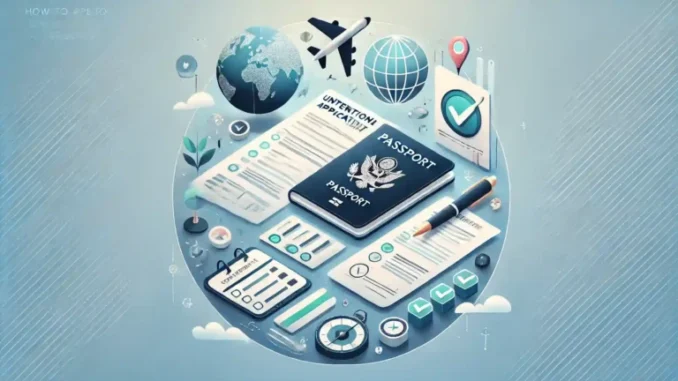
Applying to universities abroad can be an exciting but challenging process for international students. It involves navigating new systems, understanding different requirements, and meeting additional criteria like language proficiency. Here’s a step-by-step guide to help you successfully apply as an international student.
1. Research Universities and Programs
Why It’s Important: Finding the right university and program ensures your investment aligns with your academic and career goals.
What to Consider:
- Programs: Ensure they offer the major or specialization you want.
- Reputation: Look for universities with strong academic and industry connections in your field.
- Location: Consider climate, culture, and proximity to family or major cities.
- Cost: Research tuition, living expenses, and available scholarships.
Tools to Use:
- University websites
- Global rankings (QS, THE, etc.)
- Online forums like Reddit and student communities
2. Understand Admission Requirements
Key Areas to Focus On:
- Academic Qualifications: Ensure your high school diploma or undergraduate degree meets the university’s criteria.
- Standardized Tests: Some programs may require tests like SAT, ACT, GRE, or GMAT.
- English Proficiency: Non-native speakers usually need TOEFL, IELTS, or equivalent scores.
Pro Tip: Check specific requirements on the university’s website, as they can vary widely.
3. Prepare Your Documents
Essentials:
- Transcripts: Certified copies of your academic records.
- Test Scores: Submit official results for required exams (SAT, GRE, etc.).
- Letters of Recommendation: From teachers, counselors, or employers who know your work.
- Personal Statement/Essays: Highlight your goals, achievements, and why you’re a good fit for the program.
- Resume/CV: Include academic achievements, extracurriculars, and relevant work experience.
- Passport Copy: Ensure your passport is valid throughout the application process.
Pro Tip: Organize all documents in a digital folder with clear file names for easy access.
4. Check Application Deadlines
Why It Matters: Deadlines for international students may differ from domestic applicants.
Common Deadlines:
- Early Decision: November
- Regular Decision: January–February
- Rolling Admissions: Varies
Pro Tip: Apply early to account for potential delays in visa processing and document verification.
5. Meet English Language Requirements
Tests to Take:
- TOEFL (Test of English as a Foreign Language)
- IELTS (International English Language Testing System)
- Duolingo English Test: An affordable, faster alternative accepted by some universities.
What to Check:
- Minimum score requirements vary; research each university’s cutoff.
- Some programs waive this requirement if you studied in an English-medium school.
6. Apply for Scholarships and Financial Aid
Why It’s Important: Studying abroad can be expensive, so securing funding can make it more affordable.
Types of Financial Aid:
- University Scholarships: Merit-based or need-based funding from the university.
- Government Scholarships: Offered by host countries (e.g., Fulbright, Chevening, DAAD).
- Private Scholarships: From organizations in your home or host country.
Pro Tip: Research scholarship deadlines, as they often close earlier than regular admissions.
7. Submit Applications
Where to Apply:
- Centralized Systems: Common App (U.S.), UCAS (U.K.), OUAC (Canada).
- University-Specific Portals: Directly on the university’s website.
Tips for Submission:
- Tailor your essays and documents to each university’s requirements.
- Double-check for errors before submitting.
- Save confirmation emails and application receipts.
8. Prepare for Interviews (If Required)
Why It’s Important: Some universities may require interviews to assess your fit for the program.
How to Prepare:
- Practice common interview questions about your academic background, career goals, and reasons for choosing the university.
- Be ready to discuss how you’ll adapt to a new culture and environment.
9. Apply for a Student Visa
When to Start: As soon as you receive an acceptance letter.
Documents Needed:
- Proof of admission (acceptance letter)
- Financial documents to show you can cover tuition and living expenses
- Passport and recent photographs
- Proof of English proficiency (if required by the visa application)
Pro Tip: Research the visa requirements of your host country to avoid delays.
10. Plan for Accommodation and Travel
Why It’s Important: Securing housing early ensures a smooth transition.
Options:
- On-campus dormitories
- Off-campus apartments or shared housing
- Host families (in some countries)
Pro Tip: Many universities offer housing services to help international students find suitable options.
11. Familiarize Yourself with the Culture
Why It Helps: Adjusting to a new country can be easier if you’re aware of its culture, customs, and norms.
How to Prepare:
- Join student forums or social media groups.
- Learn basic phrases in the local language (if applicable).
- Research public transport and cost of living.
12. Confirm Enrollment
Final Steps:
- Respond to your acceptance offer by the deadline.
- Pay the deposit, if required, to secure your place.
Final Thoughts
Applying to university as an international student requires careful planning and organization, but the rewards of studying abroad make it worth the effort. By following these steps, you can confidently navigate the process and move closer to achieving your educational dreams. Good luck!
Leave a Reply